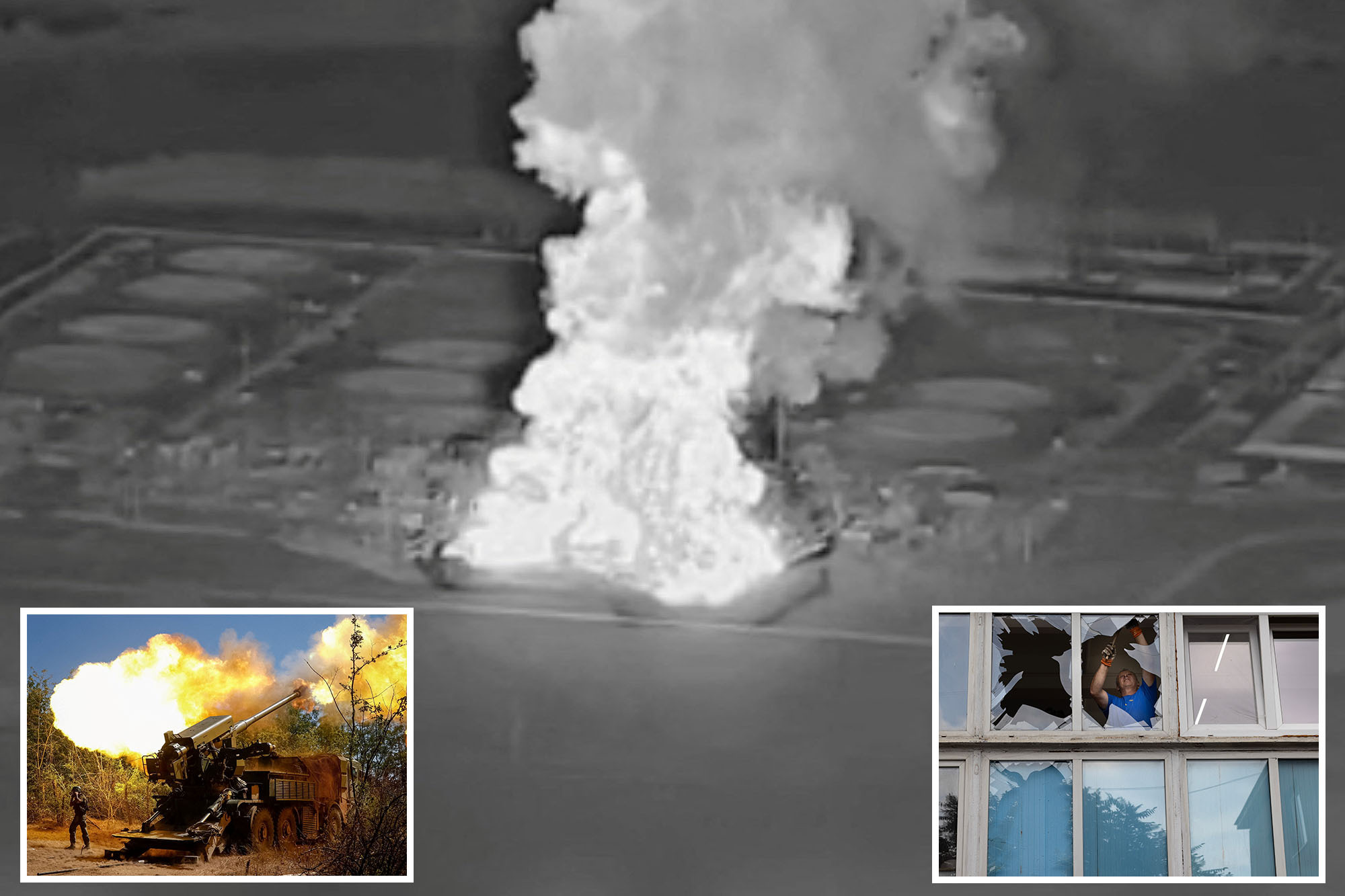Ukrainian forces targeted and severely damaged a crucial section of Russia’s Druzhba oil pipeline overnight, as military confrontations escalated amid ongoing peace negotiations. The attack on the Unecha oil pumping station, located in the Bryansk region, occurred late on March 15, 2024. According to Robert Brovdy, commander of Ukraine’s unmanned systems forces, the assault involved the use of both HIMARS rockets and drones, resulting in a significant fire at the facility.
Footage shared on social media platform Telegram depicted a large blaze engulfing multiple fuel tanks at the pumping station. The Druzhba pipeline is vital for Europe’s oil supply, particularly to countries like Hungary and Slovakia, both of which could face disruptions in their oil deliveries due to the attack. Following the strikes, the governments of Hungary and Slovakia warned that their oil supplies could be cut for at least five days.
In a letter addressed to the European Commission, Hungarian Foreign Minister Peter Szijjarto and Slovak Foreign Minister Juraj Blanar emphasized the critical nature of the pipeline. They stated, “The physical and geographical reality is that without this pipeline, the safe supply of our countries is simply not possible.”
The recent escalation in hostilities comes as both Russia and Ukraine have intensified attacks on each other’s energy infrastructure. Over the past few weeks, Ukraine has targeted Russian refineries to disrupt energy exports that fund the ongoing conflict, while Russia has repeatedly struck Ukraine’s gas facilities.
These developments unfold against the backdrop of diplomatic efforts, including recent discussions aimed at a potential peace deal facilitated by former U.S. President Donald Trump. Despite these efforts, the conflict shows no signs of abating, with both sides continuing to execute strategic military operations in a bid to weaken their opponent’s energy capabilities.
The situation remains fluid, and the implications of the attack on the Druzhba pipeline will likely extend beyond immediate military concerns, potentially impacting energy markets and geopolitical relations across Europe.







































































